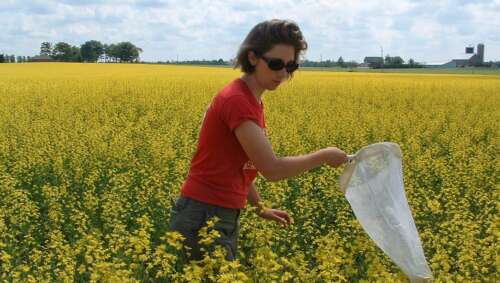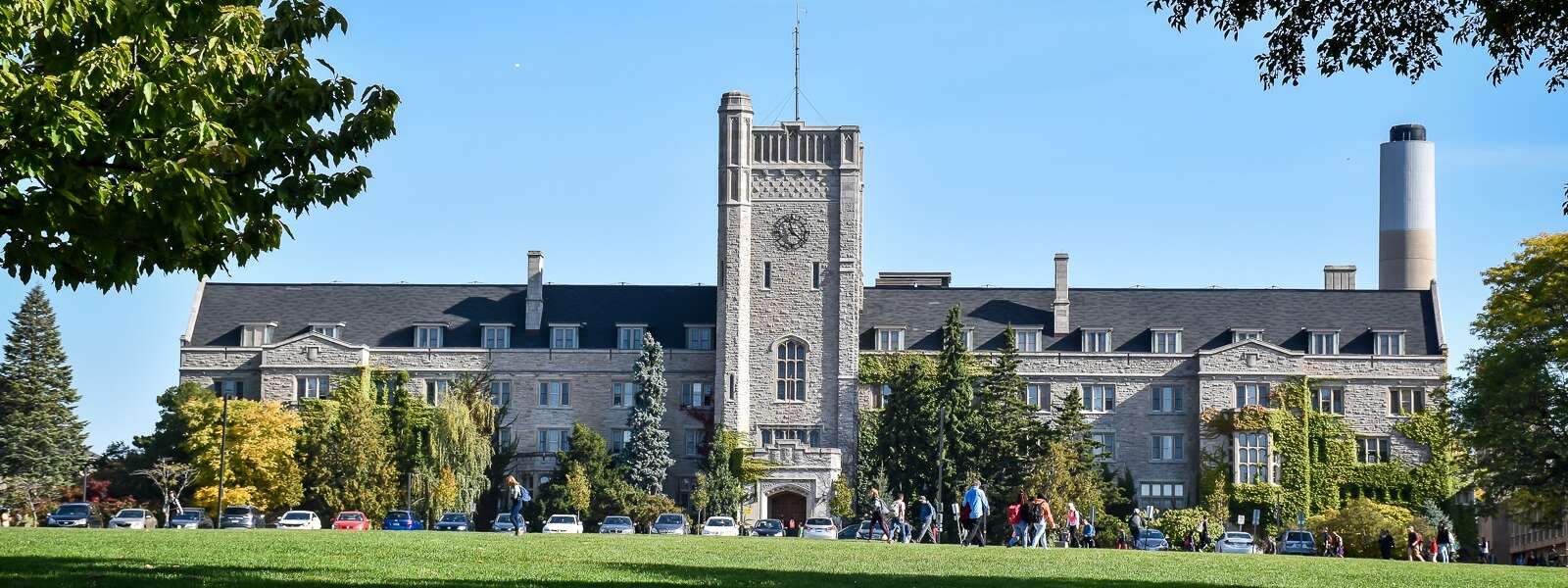As climate change brings more insect pests to Canada’s farms and forests, a newly funded research and teaching chair at the University of Guelph is intended to help manage infestation threats to crops and trees.
The new E. Alan (OAC ’60) and Jule A. Cameron Chair in Ecological Pest Management will be funded by a $3-million gift from Alan, a graduate of the Ontario Agricultural College, and his wife, Jule.
Their gift will support this new chair in the School of Environmental Sciences (SES) for an unlimited term.
Dr. Paul Sibley, SES director, said the new position will be filled in 2023.
“Sustainable pest management is a vital aspect of protecting healthy ecosystems while supporting a robust agricultural industry,” said U of G president Dr. Charlotte Yates. “On behalf of all of us at the University, I want to express my gratitude to the Camerons for their visionary gift that will grow our collective understanding of pest management best practices.”
Added Dr. Rene Van Acker, OAC dean, “We are so grateful to the Camerons for their tremendous generosity and for their vision in funding this new chair. The future of insect pest management will always be built upon a fundamental understanding of the ecological context.
“The establishment of this chair ensures that we have the entomological and insect management research and teaching capacity that will lead us into the future.”
The new faculty member will study ecologically based pest management strategies such as biological controls, semiochemicals (e.g., pheromones), and chemical and biological pesticides with minimal environmental impact.
The chair will also teach both undergraduate and graduate courses in environmental science and interact with industry, farmers and government agencies, said Sibley.
Invasive pests threaten crops, forests

Greater interest in integrated pest management comes as various pests – from midges and armyworms to Asian longhorn beetles – continue to cause millions of dollars’ worth of damage in farms and forests in Canada.
That problem will only increase as a warming climate and global trade bring the threat of new invasive species to this country, said Sibley.
“With climate change, we’re going to see increasing instances of pests and a need for ecological pest management,” he said. “This new chair position will build our capacity to help Ontario and Canadian farmers.”
Sibley said ecological pest management works along with other practices such as tilling, cover crops and crop rotation to deter harmful insects.
“We want to ensure maximum crop production and quality of products,” said Sibley.
At the same time, he added, “we have to do a better job of pest management than just adding pesticides at rates that may be detrimental to the environment.”
Forest entomology was a long-time research and teaching specialty for Alan Cameron, who completed his bachelor of science in agriculture at OAC in 1960.
He worked in California for the Commonwealth Insitute of Biological Control and then completed post-graduate studies at the University of California, Berkeley. He studied and taught at Penn State University for more than 30 years before retiring as professor emeritus in 2000.
Alan and Jule were inducted into the Order of OAC in early 2022.
Alan said, “It is our goal that the activities of the chairholder will reflect an overarching involvement in translational research, moving knowledge gained in the laboratory into successful, ecologically sensitive, pest management in the ‘real world.’ We believe that this will serve the college, the University and society at large in exciting and innovative ways.”
Sibley said experts in SES are routinely asked through the Ontario Ministry of Agriculture, Food and Rural Affairs to help farmers identify and deal with various insect pests.
“In Ontario, the University of Guelph is the information resource for agriculture,” he said. “This new chair will add to our core expertise here in the school and the college.”
Contact:
Dr. Paul Sibley
psibley@uoguelph.ca
